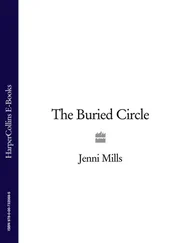John Marsden - Circle of fight
Здесь есть возможность читать онлайн «John Marsden - Circle of fight» весь текст электронной книги совершенно бесплатно (целиком полную версию без сокращений). В некоторых случаях можно слушать аудио, скачать через торрент в формате fb2 и присутствует краткое содержание. Жанр: Фантастика и фэнтези, на английском языке. Описание произведения, (предисловие) а так же отзывы посетителей доступны на портале библиотеки ЛибКат.
- Название:Circle of fight
- Автор:
- Жанр:
- Год:неизвестен
- ISBN:нет данных
- Рейтинг книги:3 / 5. Голосов: 1
-
Избранное:Добавить в избранное
- Отзывы:
-
Ваша оценка:
- 60
- 1
- 2
- 3
- 4
- 5
Circle of fight: краткое содержание, описание и аннотация
Предлагаем к чтению аннотацию, описание, краткое содержание или предисловие (зависит от того, что написал сам автор книги «Circle of fight»). Если вы не нашли необходимую информацию о книге — напишите в комментариях, мы постараемся отыскать её.
Circle of fight — читать онлайн бесплатно полную книгу (весь текст) целиком
Ниже представлен текст книги, разбитый по страницам. Система сохранения места последней прочитанной страницы, позволяет с удобством читать онлайн бесплатно книгу «Circle of fight», без необходимости каждый раз заново искать на чём Вы остановились. Поставьте закладку, и сможете в любой момент перейти на страницу, на которой закончили чтение.
Интервал:
Закладка:
‘Where’s Homer?’
‘I’m not sure. Wait, there’s Lee.’
Lee came over and I took both his hands with mine. ‘Who bought it, do you know?’
‘Yeah, it was the twins’ dad. Mr Young.’
‘Oh thank God. Are you sure?’
‘Yeah, that other guy, Rodd, he went for it pretty hard but Mr Young just kept nodding away like he didn’t care how much he paid for it, and eventually Rodd gave up.’
‘Oh that’s such a relief.’ I let go a little, let myself mould in with Lee, felt him tense against me before he too started to relax. A sudden delight ran through us both — I felt it as much in him as I did in myself. He hugged me. His passion, which had smouldered for so long, was ready to burst into wild flames and when it came to Lee I was totally combustible. ‘Hey, careful you two,’ Bronte said. ‘Here comes Homer.’
I grinned at her. ‘So?’
‘Well you know, the one you’re in love with? The one who’s in love with you?’
‘Homer? You’ve got to be kidding. Is that who you were talking about? Homer!’
I couldn’t believe the Scarlet Pimple had got it so wrong.
‘Bronte! Are you crazy? I’m in love with Lee!’
CHAPTER 29
COURT OF PROTECTIVE SERVICES: JUDGEMENT IN THE MATTER OF LINTON V
DEPARTMENT OF SOCIAL RESPONSIBILITY, HIS HONOUR JUDGE CULLEN PRESIDING.
The appellant in this matter asks for an order that would give her the guardianship of another even though she is herself under a guardianship order and even though she is a minor. Such an application raises obvious issues of maturity and responsibility, which the appellant has sought to answer in three ways. Firstly, she argues that her age is irrelevant and that the Court is entitled to consider her suitability on her merits. In making this argument she has relied considerably on Grant v Breadsell, where the High Court found that leaving a sixteen year old in charge of a creche was not in itself proof of negligence, on Ruppy v Dalby University, where the university was compelled by the Supreme Court to admit a fourteen year old to its medical faculty, and, since the war, on two cases decided by this court, namely Macalister and David, where adoptions by under-age parents were permitted.
However, in Macalister the appellant was the aunt of the child, and in David the older brother of the fifteen-year-old mother who had died. Further, in the first of these cases the child was four months old; in the second, ten months.
Counsel for the present appellant makes much of the remarks by Justice O’Massey in Grant v Breadsell where that distinguished jurist said that ‘sometimes the age of a litigant can be the least relevant measure for assessing maturity, and indeed relying upon chronological age can amount to discrimination’. Further, in David, Justice Chen said she was satisfied that the seventeen-year-old brother showed considerably more maturity in court than the maternal grandparents, to whom the Department of Social Responsibility had originally granted custody, and that ‘there is no reason to suppose that age always confers wisdom; a sense of responsibility is not the exclusive province of those over the age of eighteen, and a judge is entitled to draw upon her own experience of life in recognising that youth alone does not prevent the practice of good parenting’.
Secondly, the appellant here argues that the new flexibility exercised by the courts since the war in such matters as these ought to be extended to her, and that the other options for the child who is the subject of these proceedings are of such poor standard as to entitle her to be considered the better alternative.
It is certainly true that a new creativity and flexibility has been needed by many courts if not all, since the war, and the decisions in Macalister and David reflect that. There were a great many orphans created by the war, and the sharp rises in the cost of living, along with the smaller amount of living space available to most people, have placed tremendous pressure on the adoption and fostering agencies. The courts have, in the view of this court at least, responded both appropriately and imaginatively. Although the various options provided by the State to children who cannot be placed in families might not, in the appellant’s view, be satisfactory, they nonetheless are subject to the most stringent regulations, they are frequently and regularly inspected, and they offer the great advantage that the children in their care are in a transparent situation where they are, it is hoped, free from abuse, whilst at the same time their physical and mental health are properly supported and monitored. There is much to be said for such arrangements, and it is unfair to the institutions concerned to be compared to the conditions of a different era. Oliver Twist and Little Orphan Annie are where they should be, on the fiction shelves of libraries, and not to be compared to the current conditions for State-managed children in this country.
Thirdly, the appellant asks the Court to take into account her unusual life experience, her remarkable range of abilities gathered from her farming background as well as her wartime activity, and her personal strengths and attributes. Further, she argues that the circumstances in which she and the child in this case met created a special bond which places her in a unique relationship to him and that this uniquely qualifies her to take on the role of parent to him.
The Court has heard from a number of witnesses, including General Eric Finley of the New Zealand Army, as to the character of Ellie Linton, and is in no doubt that she is an exceptional young woman who has carried herself with great distinction through the war and subsequently in coping with the appalling murder of her parents. Further her care of the child in this case has been to the best of her ability, and the Court is satisfied that the child has suffered no neglect at her hands. There is good reason to suppose that she has helped him in many ways, and that he may have been much worse off had she not devoted so much time and energy to his cause. The relationship between them, unusual as it is, and perhaps the kind of thing which is only found in times of special exigency such as war, appears to be a genuinely strong and loving one.
I come now to the issue of the appellant’s own guardianship order. Having read the Protective Services Act of 2007, I agree with both counsel that nothing in the legislation touches upon this issue. Perhaps surprisingly, those who drafted the statute did not envisage such a situation as I have before me now. At first sight, however, it is sensible and reasonable to argue, as counsel for the Department has done, that one who is the subject of a guardianship order cannot herself be a guardian for others. The essence of such an order is that its subject is presumed to be incapable, for whatever reasons, of taking care of herself, and therefore cannot be expected to be capable of taking care of others.
At the same time the Court must recognise the realities of life. One such reality is that young people who are under guardianship orders for no other reason than that of age may, as they approach 18, be acknowledged as reaching a stage of life where it is appropriate to treat them in a more adult manner. It may, in such situations, well be appropriate to recognise their greater independence and maturity. The department can hardly be unaware that guardianship orders relating to young people who are 16 or 17 years old, and who are not disabled, often have little practical meaning, except where trust funds are concerned.
I am aware that the decision I make today may well be cited as a precedent should a similar action come before the courts at a future time, but I am satisfied that due to the maturity of the appellant in this case, her own guardianship order need be no impediment to her being granted the custody of this child, with all the responsibilities which that necessarily involves.
Читать дальшеИнтервал:
Закладка:
Похожие книги на «Circle of fight»
Представляем Вашему вниманию похожие книги на «Circle of fight» списком для выбора. Мы отобрали схожую по названию и смыслу литературу в надежде предоставить читателям больше вариантов отыскать новые, интересные, ещё непрочитанные произведения.
Обсуждение, отзывы о книге «Circle of fight» и просто собственные мнения читателей. Оставьте ваши комментарии, напишите, что Вы думаете о произведении, его смысле или главных героях. Укажите что конкретно понравилось, а что нет, и почему Вы так считаете.












